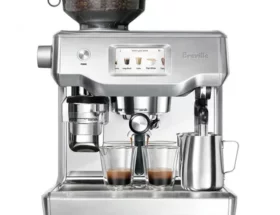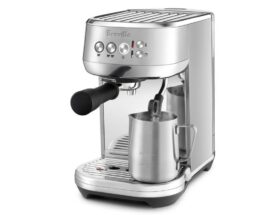
How to Greek Coffee: The Secrets to Making the Perfect Briki
As a coffee lover, you’ve probably tried various types of coffee from around the world. But have you ever had the pleasure of sipping a perfectly brewed Greek coffee? Renowned for its strong flavor and unique preparation method, Greek coffee—often referred to as a “Briki”—is a culinary experience that you certainly don’t want to miss.
Greek coffee is more than just a beverage—it’s a ritual, a part of Greek culture that speaks volumes about the nation’s love for coffee. In this blog post, we will reveal the secrets to making the perfect Briki, offering you an introduction to the world of Greek coffee that is as intriguing as it is delicious.
Table of Contents
- What is Greek Coffee?
- How to Make Greek Coffee
- The History of Greek Coffee
- The Benefits of Greek Coffee
- Frequently Asked Questions – FAQ’s
- 1. What is Greek coffee?
- 2. How do you make Greek coffee?
- 3. What are the benefits of Greek coffee?
- 4. What are the different types of Greek coffee?
- 5. What is the difference between Greek coffee and Turkish coffee?
- 6. What other names does Greek coffee go by?
- 7. What are some tips for making the perfect Greek coffee?
- 8. What are some ways to flavor Greek coffee?
- 9. What are some common mistakes people make when making Greek coffee?
- 10. Where can I buy Greek coffee?
- Conclusion
An Interesting Fact to Know
Did you know that Greek coffee was traditionally made in a “hovoli”? A hovoli is an old-fashioned, sand-filled heated stove. The sand ensures even heat distribution, allowing the coffee to brew slowly and enhance the flavor. Today, Greek coffee is often made on a stove, but some Greek households still use the hovoli for a more authentic brewing experience.
What is Greek Coffee?
Greek coffee is a strong, unfiltered coffee that is made by boiling finely ground coffee beans in water. It is a traditional coffee in Greece and Cyprus, and it is also popular in other parts of the world.
Greek coffee is made in a small, brass pot called a briki. The briki is placed over a stovetop and filled with water and finely ground coffee beans. The coffee is then boiled, and the grounds are allowed to settle to the bottom of the pot.
Greek coffee is typically served in small cups, and it is often accompanied by a sweet treat, such as baklava or loukoumi.
How to Make Greek Coffee
To make authentic Greek coffee, the essential equipment includes a “briki” and Greek coffee cups with a capacity of about 2 fluid ounces (60-70 ml). The “briki” is crucial for creating the perfect foam (“kaimaki”), a vital aspect of the process. Different demitasse cup sizes are available to ensure the right amount of foam. Preserving the foam during serving indicates a well-roasted coffee, making it a key element in achieving a delicious Greek coffee experience.
Making Greek coffee is a simple process, but there are a few tips that can help you make the perfect cup.
- Use finely ground coffee beans. The finer the grind, the stronger the coffee will be.
- Use a briki. A briki is a small, brass pot that is specifically designed for making Greek coffee.
- Heat the water slowly. Bring the water to a boil slowly, and then remove it from the heat immediately.
- Let the coffee settle. Allow the coffee grounds to settle to the bottom of the pot before serving.
Tips for Making the Perfect Coffee
- Use fresh, cold water.
- Use a high-quality coffee.
- Grind the coffee beans just before brewing.
- Heat the water to the correct temperature.
- Don’t overboil the coffee.
- Let the coffee settle before serving.
Experiment with Different Flavors
Greek coffee is a versatile beverage, and you can experiment with different flavors to create your own unique cup.
- Add a pinch of cinnamon or nutmeg to the coffee grounds before brewing.
- Add a splash of vanilla extract or almond extract to the coffee after brewing.
- Top the coffee with a dollop of whipped cream or a drizzle of honey.
The History of Greek Coffee
Greek coffee is a strong, unfiltered coffee that is made by boiling finely ground coffee beans in water. It is a traditional coffee in Greece and Cyprus, and it is also popular in other parts of the world.
The history of Greek coffee is long and storied. It is believed to have originated in the Middle East in the 15th century, and it was brought to Greece by Turkish traders. Greek coffee quickly became popular in Greece, and it is now considered to be one of the national beverages of the country.
Greek coffee is traditionally made in a small, brass pot called a briki. The briki is placed over a stovetop and filled with water and finely ground coffee beans. The coffee is then boiled, and the grounds are allowed to settle to the bottom of the pot.
Greek coffee is typically served in small cups, and it is often accompanied by a sweet treat, such as baklava or loukoumi.
There are two main types of Greek coffee: “sketo” (plain) and “metrio” (medium). Sketo Greek coffee is made with just water and coffee beans, while metrio Greek coffee is made with water, coffee beans, and sugar.
Greek coffee is a strong and flavorful coffee, and it is often enjoyed for its stimulating effects. It is also a popular coffee for social gatherings, and it is often served at weddings, baptisms, and other special occasions.
The Benefits of Greek Coffee
Greek coffee has a number of health benefits. It is a good source of antioxidants, which can help to protect the body against damage from free radicals. Greek coffee also contains caffeine, which can help to improve alertness and cognitive function.
In addition to its health benefits, Greek coffee is also a delicious and versatile beverage. It can be enjoyed plain, or it can be flavored with different spices or sweeteners. Greek coffee is also a popular ingredient in many desserts and pastries.
Frequently Asked Questions – FAQ’s
1. What is Greek coffee?
Greek coffee is a strong, unfiltered coffee that is made by boiling finely ground coffee beans in water. It is a traditional coffee in Greece and Cyprus, and it is also popular in other parts of the world.
2. How do you make Greek coffee?
Making Greek coffee is a simple process, but there are a few tips that can help you make the perfect cup.
- Gather your ingredients. You will need finely ground coffee beans, water, and a briki.
- Fill the briki with water. The amount of water you use will depend on how strong you like your coffee.
- Add the coffee beans to the water. The amount of coffee beans you use will also depend on how strong you like your coffee.
- Place the briki on the stovetop and bring the water to a boil.
- Once the water has come to a boil, remove the briki from the heat and let it sit for a few minutes.
- Serve the coffee immediately.
3. What are the benefits of Greek coffee?
Greek coffee has a number of health benefits. It is a good source of antioxidants, which can help to protect the body against damage from free radicals. Greek coffee also contains caffeine, which can help to improve alertness and cognitive function.
4. What are the different types of Greek coffee?
There are two main types of Greek coffee: “sketo” (plain) and “metrio” (medium). Sketo Greek coffee is made with just water and coffee beans, while metrio Greek coffee is made with water, coffee beans, and sugar.
5. What is the difference between Greek coffee and Turkish coffee?
Greek coffee and Turkish coffee are very similar, but there are a few key differences. Greek coffee is typically made with a finer grind of coffee beans, and it is boiled for a shorter period of time. This results in a stronger, more concentrated cup of coffee. Turkish coffee, on the other hand, is made with a coarser grind of coffee beans, and it is boiled for a longer period of time. This results in a thicker, more viscous cup of coffee.
6. What other names does Greek coffee go by?
Greek coffee is also known by a variety of other names, including:
- Turkish coffee
- Greek-style coffee
- Boiled coffee
- Syrupy coffee
- Mountain coffee
- Arabic coffee
- Levantine coffee
- Middle Eastern coffee
These names reflect the fact that Greek coffee is a traditional coffee in many countries in the Middle East and Mediterranean. It is also a popular coffee in Cyprus, Turkey, and Albania.
Greek coffee is made by boiling finely ground coffee beans in water. This results in a strong, concentrated cup of coffee that is often served with a layer of foam on top. Greek coffee can be enjoyed plain, or it can be flavored with different spices or sweeteners.
Here are some of the most common names for Greek coffee in different languages:
- Greek: Ελληνικός καφές (ellinikós kafes)
- Turkish: Türk kahvesi
- Arabic: قهوة تركية (qahwa turkiyya)
- Hebrew: קפה טורקי (kafeh turki)
- Albanian: kafe turke
- Italian: caffè turco
- Spanish: café turco
- French: café turc
- German: türkischer Kaffee
7. What are some tips for making the perfect Greek coffee?
- Use fresh, cold water.
- Use a high-quality coffee.
- Grind the coffee beans just before brewing.
- Heat the water to the correct temperature.
- Don’t overboil the coffee.
- Let the coffee settle before serving.
8. What are some ways to flavor Greek coffee?
Greek coffee is a versatile beverage, and you can experiment with different flavors to create your own unique cup.
- Add a pinch of cinnamon or nutmeg to the coffee grounds before brewing.
- Add a splash of vanilla extract or almond extract to the coffee after brewing.
- Top the coffee with a dollop of whipped cream or a drizzle of honey.
9. What are some common mistakes people make when making Greek coffee?
- Using too much water.
- Using too coarse a grind of coffee beans.
- Overboiling the coffee.
- Not letting the coffee settle before serving.
10. Where can I buy Greek coffee?
Greek coffee is available at most grocery stores, as well as online. You can also find it at specialty coffee shops.
I hope this FAQ section has answered your questions about Greek coffee. If you have any other questions, please feel free to leave a comment below.
Conclusion
Greek coffee is a strong, flavorful coffee that is a traditional drink in Greece and Cyprus. It is made by boiling finely ground coffee beans in water, and it is typically served in small cups. Greek coffee can be enjoyed plain, or it can be flavored with different spices or sweeteners.
If you are looking for a strong, flavorful coffee that is different from the usual cup of joe, then you should definitely try Greek coffee. You can find Greek coffee at most grocery stores, as well as online. You can also find it at specialty coffee shops.
I hope you enjoyed this blog post on Greek coffee. If you have any questions, please feel free to leave a comment below. And if you have tried Greek coffee, I would love to hear your thoughts on it.
Visit Ten Coffees for more information on Greek coffee and other coffee brewing methods.
Thank you for reading!









